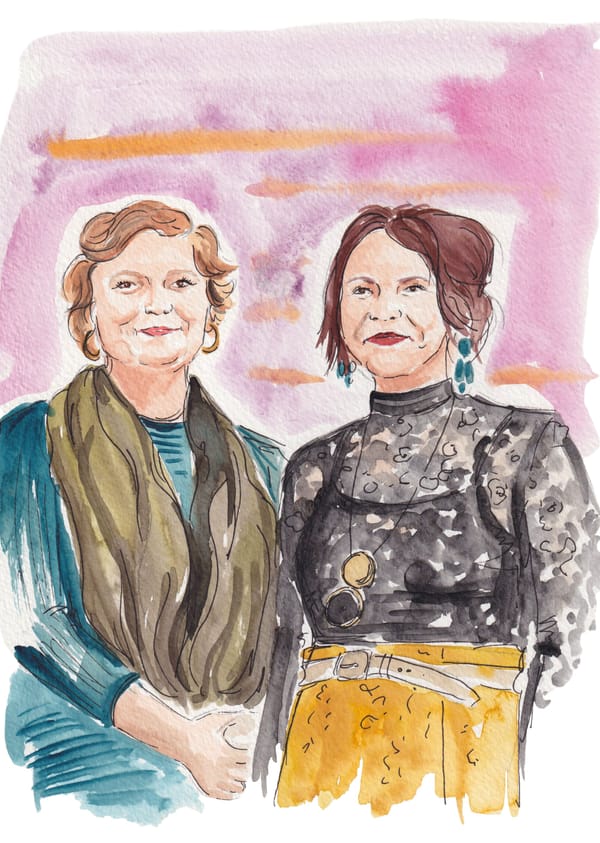What They See In Him: The Women Who Know They’re Voting for Trump
Some women are still backing Trump, even though they don't love his behavior—and they're even more enthusiastic about JD Vance.

Chelsey Painter Davis is a bundle of energy. With two toddlers, a baby on the way and well over 53,000 followers on social media, she needs to be.
Blind Mom Life—her Instagram account, which details in short videos, essays and photographs what it’s like parenting after losing her sight—is a unique mixture of everyday humor and ideology. Her “most embarrassing mistakes as a blind mom” include, according to one of her videos, picking up her newborn upside-down and accidentally microwaving insect spray. Another video promises to show you how she knows one of her toddlers has peed on the floor—before cutting to footage of her slipping and hitting the floor, hard, while holding a laundry basket.
The videos are self-effacing, even charming. But this day-in-the-life imagery comprises only half of her online output. The other half is a litany of posts that outline her hardline stance on reproductive rights. “Facts I share that upset the internet,” begins one, before regurgitating a number of controversial claims made by anti-abortion groups.
To say that Davis has upset some people is an understatement. “I’m not shocked by the disagreements that happen on the channel,” she says during a phone interview, with a laugh. “That’s a risk when you’re saying things that you believe are true—a lot of people aren’t gonna like them.”
Davis is clear on one other thing, too: She’s voting for Donald Trump—in fact, this election will mark her third time doing so.
Davis, age 29, is just one of the millions of women in the U.S. who are planning to vote for the Trump-Vance ticket in November. She neatly fits a demographic that usually votes Republican—Christian, white, based in the suburbs. Indeed, she is part of the same group that successfully pushed Trump into office back in 2016, when 47% of white women voted for him. But while the goal is the same—to “make America great again,” if you will—their reasons are myriad and complex. They are not a monolith after all.
This time, the odds look different—although the 2024 election is so close that it’s hard to say for sure. Every poll so far has failed to be conclusive, and with margins of error between 1% and 3%, those tiny percentages could change the outlook entirely.
This also explains why both candidates have taken such a scattershot approach to campaigning, attempting to peel off slices of various demographics to their advantage.
Still, most evidence suggests women across the country of all races prefer Harris over Trump —and that young women in particular (those aged between 18 and 49) may be, more generally, moving away from the Republican party.
Plenty of them have stayed red, however. And it’s important to consider why.





